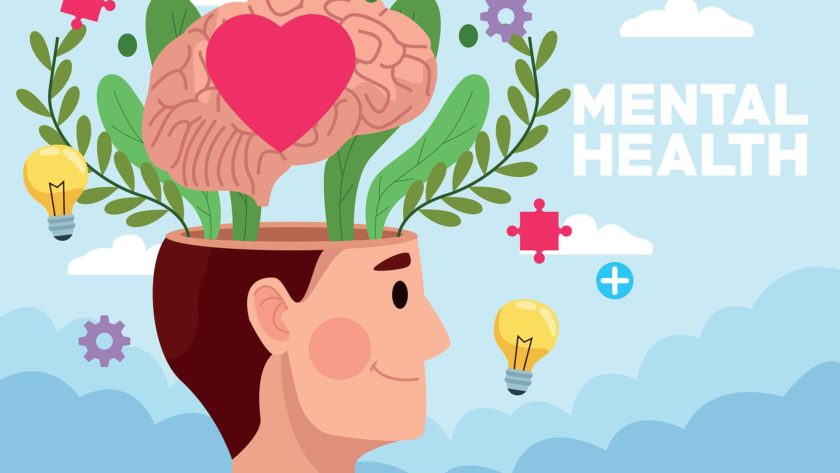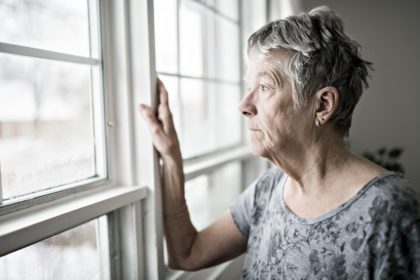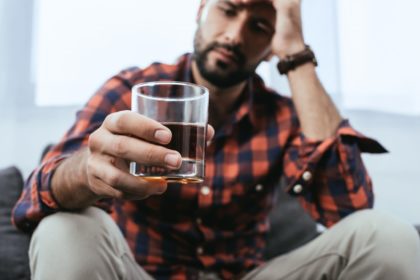One in five people experience a mental illness or substance use problem in any given year. May is Mental Health Awareness Month and is a catalyst for us to learn more, seek help, and offer support to those with mental health conditions and addictions. The goal is to increase knowledge and end the stigma surrounding mental health. Here’s how…
Staggering Mental Health Statistics
- Almost half of all Americans (nearly 170 million) will experience a mental illness during the course of their lifetime.
- More than 20 million Americans, ages 12 and older, will face an addiction. (experience a substance use disorder each year)
- Only 41% of people with a mental health diagnoses receive treatment because it is either not available or they cannot bring themselves to ask for help. (Only 41% of those millions of people will get the treatment they need.)
- 1 in 4 active duty members showed signs of a mental health condition requiring treatment.
- 20 Veterans die by suicide each day.
- More than 2 out of 5 students (44%) reported persistent feelings of sadness or hopelessness since the pandemic (per a new CDC survey):
- 1 in 5 seriously considered suicide
- Nearly 1 in 10 attempted suicide
NOTE: The statistics say that the person experiencing the mental illness or addiction won’t ask for help. Instead people try to hide their pain.
1. Get Certified in Mental Health First Aid (MHFA)
MHFA (from National Council for Mental Wellbeing) was created in 2001 by a nurse specializing in health education and professor in mental health.
“Mental Health First Aid” is a skills-based course that teaches you how to help someone who is developing a mental health problem or experiencing a mental health crisis (e.g., panic attacks, depression, or addiction). Virtual or in-person. https://www.mentalhealthfirstaid.org
- When someone appears to be having a heart attack, people know to call 9-1-1 or start CPR. But few people know what to do if someone is having a panic attack or if a friend or co-worker is exhibiting signs of alcoholism.
- Like CPR, this course helps recognize if someone needs help and provides the tools to use in the moment.
- Taught by two certified instructors, the training helps you identify, understand, and respond to signs of addictions and mental illnesses. Course for Youth, Adults, and Veterans.
“Mental Health First Aid for Veterans” helps recognize risk factors and warning signs for common mental health challenges facing veterans and military members.
- Teaches an action plan for reaching out and offering support.
- The course discusses military culture and breaks down the stigma associated with:
- PTSD
- Depression
- Addiction and more…
- This skills-based training course makes it easier for people to reach out for help when they need it because even heroes need help sometimes.
- Let a Veteran know that support is available in their community.
- Reach out to a Veteran who may need help.
Mental Health First Aid (MHFA) Action Plan (ALGEE) — The course is structured around the following:
- Approach and assess for risk of suicide or harm.
- Listen non-judgmentally.
- Give reassurance and information.
- Encourage appropriate professional help.
- Encourage self-help and other support strategies.
In addition to the action plan, employ 4 steps to “HELP”:
- Hearing them.
- Engaging them.
- Learning from them.
- Planning with them.
“Be There Certificate”: There is also another digital certification, which is free of charge and has six interactive lessons that can be accessed at any time. (It is offered in English, Spanish, and French.) https://betherecertificate.org
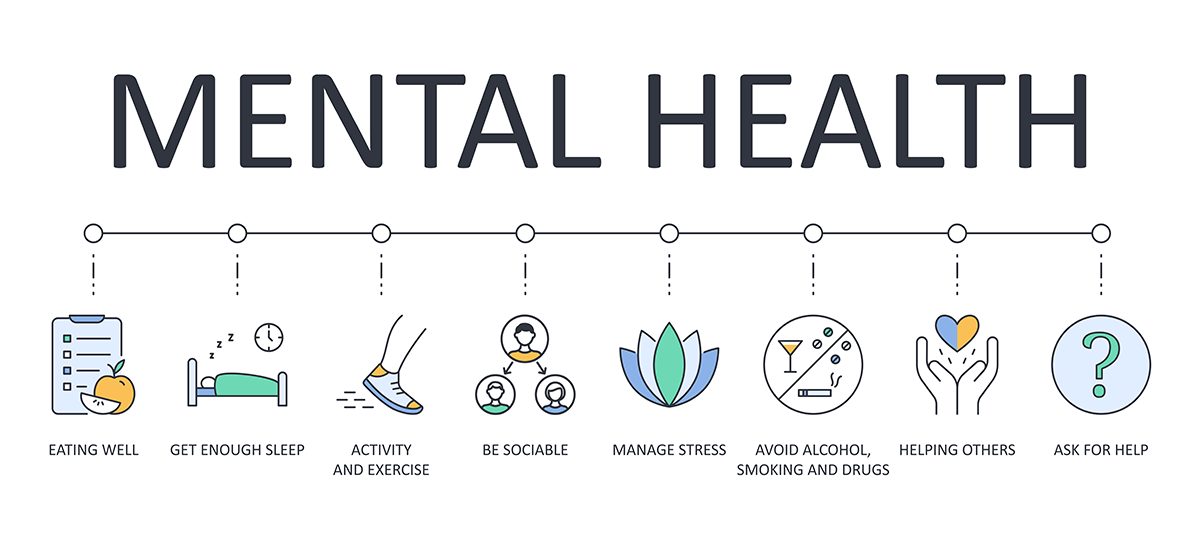 2. Learn More About Your Own Mental Health
2. Learn More About Your Own Mental Health
- Learn more about your own mental health status can be one of the most empowering things you can do for yourself.
- To start the process, take an online mental health screening at https://screening.mhanational.org/screening-tools/.
- This online screening is one of the quickest and easiest ways to determine whether you are experiencing symptoms of a mental health condition.
- Mental health conditions, such as depression or anxiety, are real, common, and treatable.
- There is a mental health test specific for 10 different conditions, e.g., depression, anxiety, PTSD, addiction, postpartum depression, youth, and eating disorders.
- After screening, information, resources, and tools are provided to better understand and improve mental health.
NOTE: Online screening tools are meant to be a quick snapshot of your mental health. Consider sharing the results with someone, such as a mental health provider (e.g., doctor or therapist) who can give you a full assessment and discuss options for how to feel better.
3. Reach Out
There are various ways to acquire immediate assistance.
For support:
- National Suicide Prevention Hotline: 1-800-273-TALK (8255)
- Text (Crisis Text Line): “MHA” to 741-741
- Someone to talk to: Most states have warplanes: https://warmline.org
24/7 Confidential Crisis Support for Veterans:
- Veterans Crisis Line: 1-800-273-8255 and Press 1 (for Veterans and their loved ones)
- Chat online: https://veteranscrisisline.net
- Text: 838255
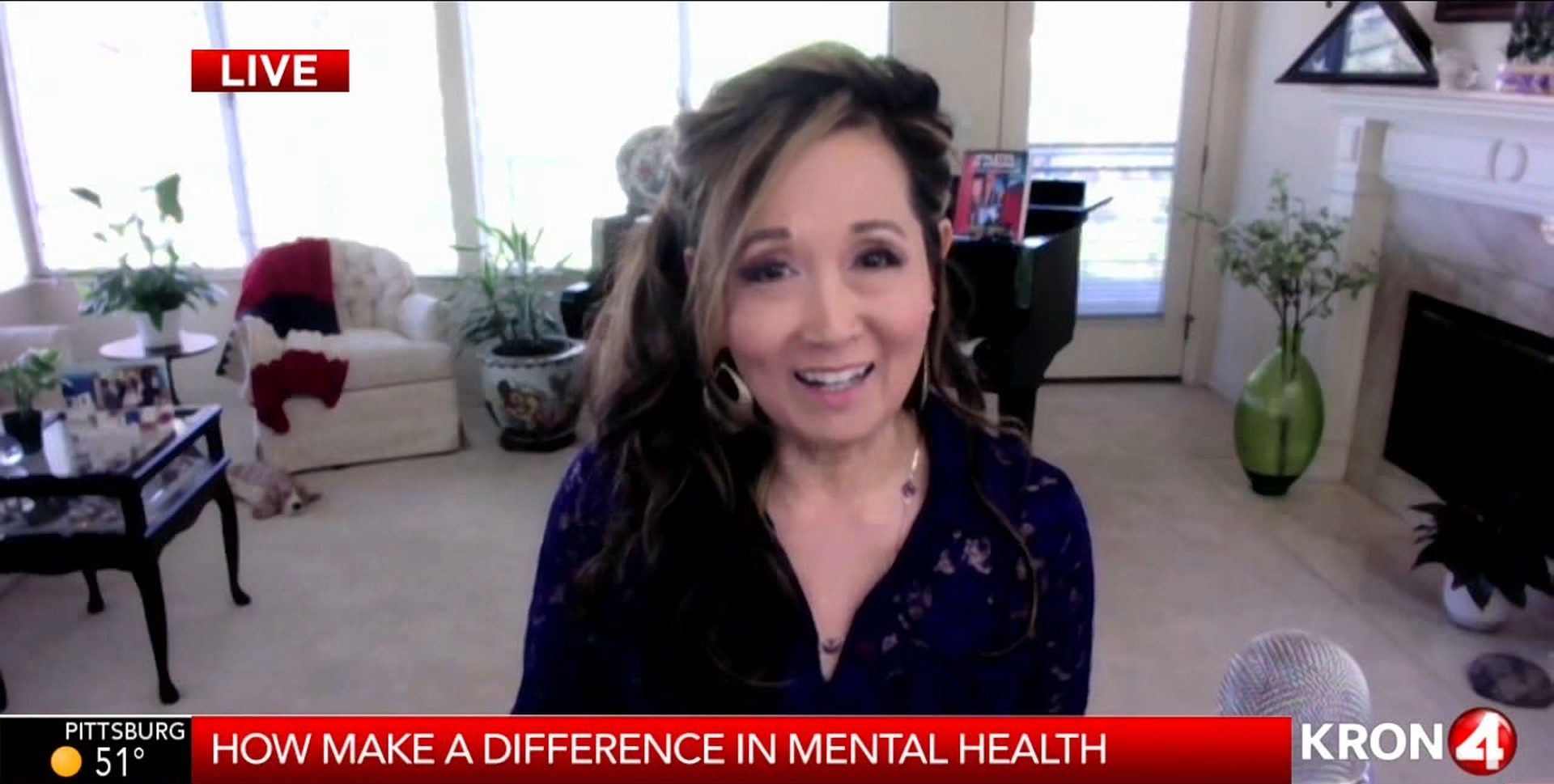
![]() Karen’s Fit Tip: Don’t let your loved ones, our heroes, people in our community suffer in silence. Be the one to make a difference in someone’s life. Get trained in Mental Health First Aid at: MentalHealthFirstAid.org.
Karen’s Fit Tip: Don’t let your loved ones, our heroes, people in our community suffer in silence. Be the one to make a difference in someone’s life. Get trained in Mental Health First Aid at: MentalHealthFirstAid.org.

